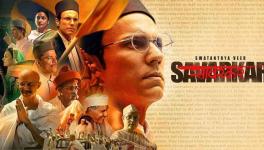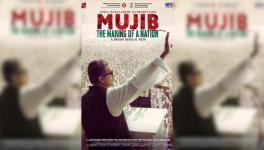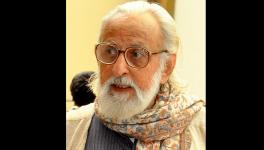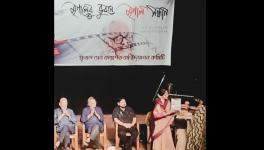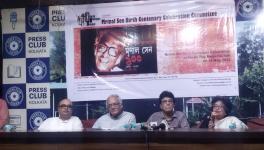Sensitive New Audiences Give Filmmakers Much to Rejoice: Jeo Baby
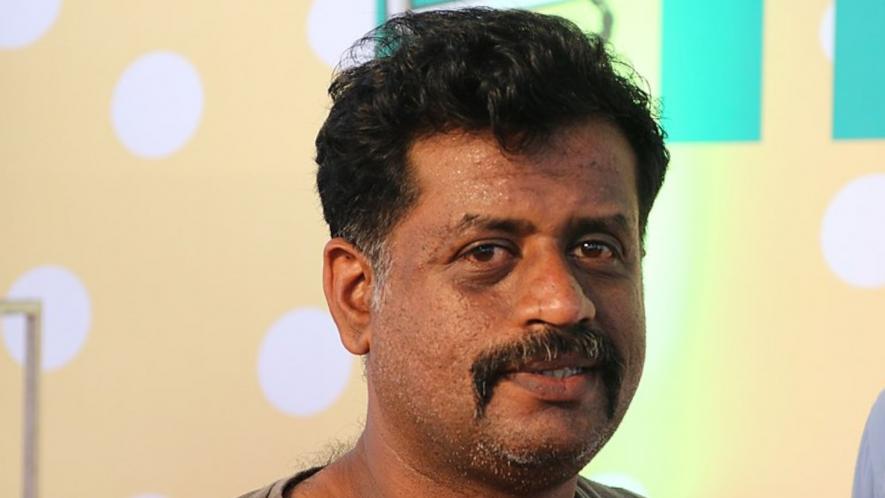
Image Courtesy: Wikimedia Commons
Jeo Baby is a well-known Malayalam language filmmaker whose The Great Indian Kitchen (2021) gained critical acclaim across India. The film’s main concerns are patriarchy and the role of women in Indian families. Baby recently released his movie Kaathal: The Core on Amazon Prime. It has sparked discussions on the theme and performance of its renowned cast, which includes Mammootty and Jyothika. Interwoven around a family in Kerala, Kaathal is bound to be noticed for its compassionate articulation. Arvind Das talked to Jeo Baby about the film. Edited excerpts:
Arvind Das: Kaathal has two meanings: love and the core. Please tell us a bit more about the title of the movie.
Jeo Baby: Yes, it has two meanings because of our proximity to Tamil Nadu. It means “love” in Tamil and “the core” in Malayalam. In the movie, we discuss the core element of the human heart: What does love between two human beings mean? We discuss the core that exists in relationships. The film is also about Mathew, Thankan, Omana and their father. So, we discuss what is the core of these characters.
AD: This movie is about love--and forbidden love--yet we don’t find any villain in it, as we would in a mainstream film.
JB: Mathew and Omana are both victims of social circumstances. But there are a lot of issues with our family system, so that’s the villain. Mathew doesn’t want to marry a woman, but his father forces him into marriage. In the same way, Omana has a relationship with another man but is forced to marry Mathew. The social set-up in India is the main issue.
AD: Before the Supreme Court struck down Section 377 of the Indian Penal Code in 2018, you tried to make a movie with homosexuality as the theme, but it was not allowed. How did you come to make this movie?
JB: This movie was not planned. Adarsh [Sukumaran] and Paulson [Skaria], who wrote the story, came to me. I told them I wanted to make the movie my way and that we would have to work together. In 2007, I made a short movie about homosexuality. It was a movie supportive of the LGBTQ community. I and three other students were dismissed from college because of this movie.
AD: Let us talk about Mammootty! To my knowledge, this is the first time he has portrayed a homosexual character, Mathew’s role in your film. Why did you approach him for this role?
JB: I needed a good actor for the role [of Mathew], and at the same time, I needed a principled human being to accept this story and the character. So, my first choice was Mammootty, and he liked our story. He was waiting for such a different character. He was involved in the screenplay, too. He was very excited to do this.
AD: And this movie is produced by him, too?
JB: Yes, it is produced by his company. He asked me whether I had any producers, and when I said no, he said we would do it. Jyothika was Mammookka’s (Mammootty) suggestion, too. We approached her, and also she liked our story. When Mammookka came on board, everything became very easy.
AD: Indeed, Mammootty is a great actor. I wish to know more about his creative process and how he prepares for his role.
JB: He is very cool. I had heard many stories about him, and I was tense at first. He is like a little child who always behaves like one--fun-loving and cracking jokes. He always makes people laugh on set. Before the shooting began, he asked me if I could change the cinematographer. I told him to trust me. Later, he complimented me on my decision.
AD: Kaathal: The Core’s release on Amazon Prime has made you a household name around the country, but what are the reactions to the film in Kerala?
JB: The movie has been very well received at the box office. I am thankful for each movie-goer and every audience. I am very happy that we have such a great audience and that the film watchers are a little more sensitive.
AD: Before this movie, you attained pan-Indian fame with The Great Indian Kitchen. Both your films are political in terms of the themes. What comes next for you?
JB: I want to do something different, not political. I love fun. I don’t know what comes next, but as a professional filmmaker, I am trying to do something different.
AD: What would you say as a director about a movie like The Kerala Story, which is also a political film?
JB: I don’t have any comments [about the film specifically]. Actually, there are a lot of bad moments happening in India right now. But many people from Tamil Nadu, Kerala, are fighting against these propaganda political movies. I am also part of that.
AD: Kerala has produced many well-known film directors like Adoor Gopalakrishnan, G Aravindan, KG George, etc. What do you think about the new community of younger film directors?
JB: Recently, I attended the International Film Festival of Kerala (IFFK), where I met many good directors. I wondered about Thadavu by Fazil Razak and Anand Ekarshi’s Aattam. Also, Family by Don Palathara and Neelamudi [by theatre practitioners] are good movies. I was thrilled to see all these movies.
AD: When I was talking to you about The Great Indian Kitchen, you mentioned KG George’s Adaminte Vaariyellu. He passed away last year. Is there anything you wish to share with us about his films?
JB: KG George did many different things and was a highly progressive filmmaker. He discussed the kitchen and family in Adaminte Vaariyellu. I changed my screenplay of The Great Indian Kitchen after watching this film. Of course, his movies are timeless.
AD: What role, according to you, can art play in the current political milieu?
JB: Yes, art will affect society at large. It will change people. We are doing that through our movies. We don’t have a huge budget here [in Kerala], but we are getting pan-India attention because of our content and quality.
(Arvind Das is an independent journalist.)
Get the latest reports & analysis with people's perspective on Protests, movements & deep analytical videos, discussions of the current affairs in your Telegram app. Subscribe to NewsClick's Telegram channel & get Real-Time updates on stories, as they get published on our website.









